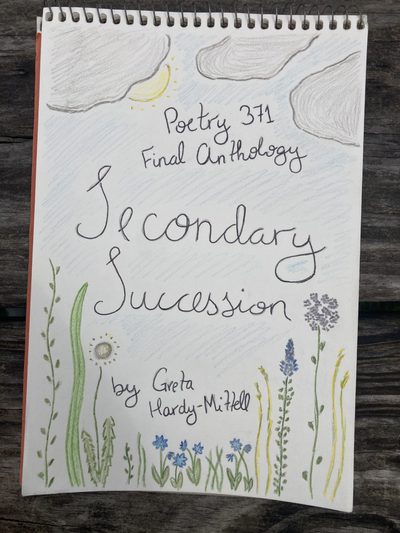Final Projects at Carleton
In which Greta describes her upcoming final papers and projects
In which Greta describes her upcoming final papers and projects
Here at Carleton, finals season is upon us.
Well, technically it starts this weekend — but I’ve found that the work often picks up the week before. Professors assign final project proposals, annotated bibliographies, peer reviews, and just generally encourage students to start studying and writing finals. This sounds scary, but the bright side is that readings and other small assignments often drop off. The focus shifts from learning new material to synthesizing the learning you’ve done throughout your courses.
In this post, I’m going to give you a glimpse into the finals for each of my classes! Note: I’m a humanities and social sciences person, so this will generally translate into final papers and projects. STEM classes and intro language courses will air on the side of final exams. Some exceptions apply to both of these trends, but that’s generally what to expect.
History 176: Immigrants and Identity in Latin American History, 1845-present
The final for this class is an 8-10 page research paper about basically any topic we choose, as long as it’s related to the course. Some people are directly using articles we read for class. I’m looking at a topic we didn’t discuss much: Japanese immigrants in Peru and their experiences as a racialized immigrant group. It’s really cool to get the chance to research an area that I wouldn’t have learned about otherwise!
This is the first history course I’ve taken at Carleton, so one thing I’ve appreciated about the assignment is that it’s been spread throughout the term. We had a proposal due the second week of class, then source analyses due midway through, then an outline due last week and a peer review this week. This has given me plenty of time to familiarize myself with my topic and get used to history research.
Did someone say research? Carleton’s Gould Library is super well-equipped to help students with that. There are research librarians available for appointments and even course guides for some research-heavy classes!
Latin American Studies 250: Indigeneity and Power in the Andes
The final for this course is even more up to us. We can write a traditional paper that’s either a comparative analysis of two works we’ve read/watched or a synthesis of one major course theme across works. But we can also choose a podcast episode, zine, or another artistic/literary work!
This matches well with the course, which has been incredibly interdisciplinary. Our assignments have ranged from reading academic papers to watching documentaries and children’s shows (seriously). The professor told us in class that one of his goals is to take the emphasis off of writing as the *only* form of knowledge transmission, which I find to be a super interesting decolonization practice.
My final project is going to be a sort of “curator’s introduction” to a collection of stories and art created by Andean Indigenous women. This includes poetry, music, short films, activist projects, and more. I’m really excited about it, given my interests in language and storytelling. It’s no coincidence that my final class is:
English 371: Advanced Poetry Workshop
Like in history, I’ve been working on my final for this class throughout the entire term: it’s an anthology of all the poems we’ve turned in! This sounded easy to me at first but now I’m realizing that I have to revise 18 poems…. which is a lot….
To procrastinate and keep my hands busy during Zoom meetings, I drew this cover for the anthology! I hope I end up being just as proud of the poems themselves.

Whew. Finals is a lot of work.
But the good news: it’s all stuff I want to do!
That’s a huge bonus to college. You get to choose your classes, and while some of them might not be your faves, you’ll be interested in most of them. Passionate about research and writing and creative work, like me? You can do that! Prefer to learn about science or math instead? You can do that, too! And finals will be your chance to show what you’ve learned and how you’ve grown throughout the term.
So yes, finals are difficult and exhausting. But if you sit down to do the work (then take some time to rest in between!), you’ll make it through.
Greta is a sophomore and a proud Vermonter who loves the Minnesota prairie almost as much as the Green Mountains. She enjoys writing constantly, playing piano, and spending time outdoors. And eating lots of chocolate. She wants to learn everything, but she’s a major in Latin American Studies and a minor in Creative Writing. Meet the other bloggers!